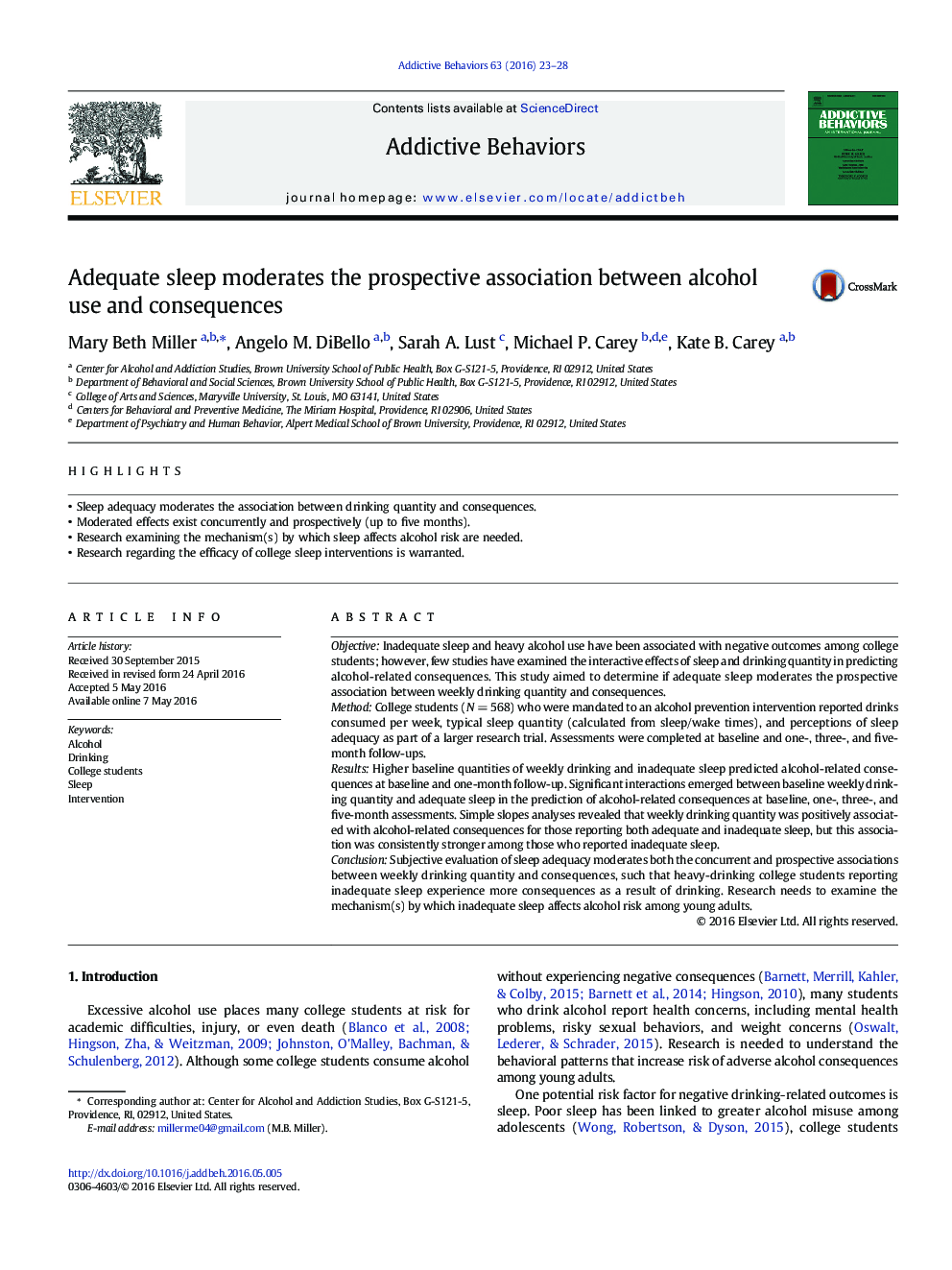| Article ID | Journal | Published Year | Pages | File Type |
|---|---|---|---|---|
| 898557 | Addictive Behaviors | 2016 | 6 Pages |
•Sleep adequacy moderates the association between drinking quantity and consequences.•Moderated effects exist concurrently and prospectively (up to five months).•Research examining the mechanism(s) by which sleep affects alcohol risk are needed.•Research regarding the efficacy of college sleep interventions is warranted.
ObjectiveInadequate sleep and heavy alcohol use have been associated with negative outcomes among college students; however, few studies have examined the interactive effects of sleep and drinking quantity in predicting alcohol-related consequences. This study aimed to determine if adequate sleep moderates the prospective association between weekly drinking quantity and consequences.MethodCollege students (N = 568) who were mandated to an alcohol prevention intervention reported drinks consumed per week, typical sleep quantity (calculated from sleep/wake times), and perceptions of sleep adequacy as part of a larger research trial. Assessments were completed at baseline and one-, three-, and five-month follow-ups.ResultsHigher baseline quantities of weekly drinking and inadequate sleep predicted alcohol-related consequences at baseline and one-month follow-up. Significant interactions emerged between baseline weekly drinking quantity and adequate sleep in the prediction of alcohol-related consequences at baseline, one-, three-, and five-month assessments. Simple slopes analyses revealed that weekly drinking quantity was positively associated with alcohol-related consequences for those reporting both adequate and inadequate sleep, but this association was consistently stronger among those who reported inadequate sleep.ConclusionSubjective evaluation of sleep adequacy moderates both the concurrent and prospective associations between weekly drinking quantity and consequences, such that heavy-drinking college students reporting inadequate sleep experience more consequences as a result of drinking. Research needs to examine the mechanism(s) by which inadequate sleep affects alcohol risk among young adults.
